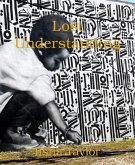How Successful Authors Write Short Stories: Learning the Plot
Most beginners seem to have the idea that the writing game is a very easy game to play, as easy as ping-pong, for instance.
A few of them have acquired a fair education; others, not so fortunate, are equipped with nothing but a gnawing desire to write, and on first appearances it seems to them that it should prove to be a very simple matter to weave their ideas into readable stories.
Some of them have a vague idea of what a plot is, but they know-nothing about BALANCE, INCITING MOTIVES, CRUCIAL SITUATIONS, CLIMAXES, etc., and care less.
When they read in their favorite magazine a cameo-like story by some master writer, they do not realize that the author may have labored for days over that story, rearranging words, eliminating paragraphs and even whole pages from the original draft, and reconstructing the plot after he has torn it to pieces half-a-dozen times.
The words flow so smoothly, the characters stand out so clearly, the plot is so simple - how easy it must be! But these writers are soon disillusioned when the rejection slips begin to roll in on them with the regularity of well-oiled clockwork.
Not until they have served a long apprenticeship do they learn that authorship is as much of a profession as surgery is and that, as in all other pursuits, it is simply a matter of the survival of the fittest.
No writer can hope to achieve real success in the writing field unless he is well-grounded in the fundamentals of plot construction, nor can he avoid an atmosphere of SAMENESS in his stories and give them the stamp of cleverness and originality unless he constantly adds to his store of plot material.
"The plot's the thing," and the writer who relies solely upon inspiration to furnish him with suitable plots for his stories cannot begin to compete with his more practical brother craftsman who stimulates his imagination with tid-bits from real life, as it were, and builds the foundations for his stories with the same care and exactitude that a stone mason would employ in building the foundation and framework of a house.
Get Your Copy Now.
Dieser Download kann aus rechtlichen Gründen nur mit Rechnungsadresse in A, B, BG, CY, CZ, D, DK, EW, E, FIN, F, GR, H, IRL, I, LT, L, LR, M, NL, PL, P, R, S, SLO, SK ausgeliefert werden.









